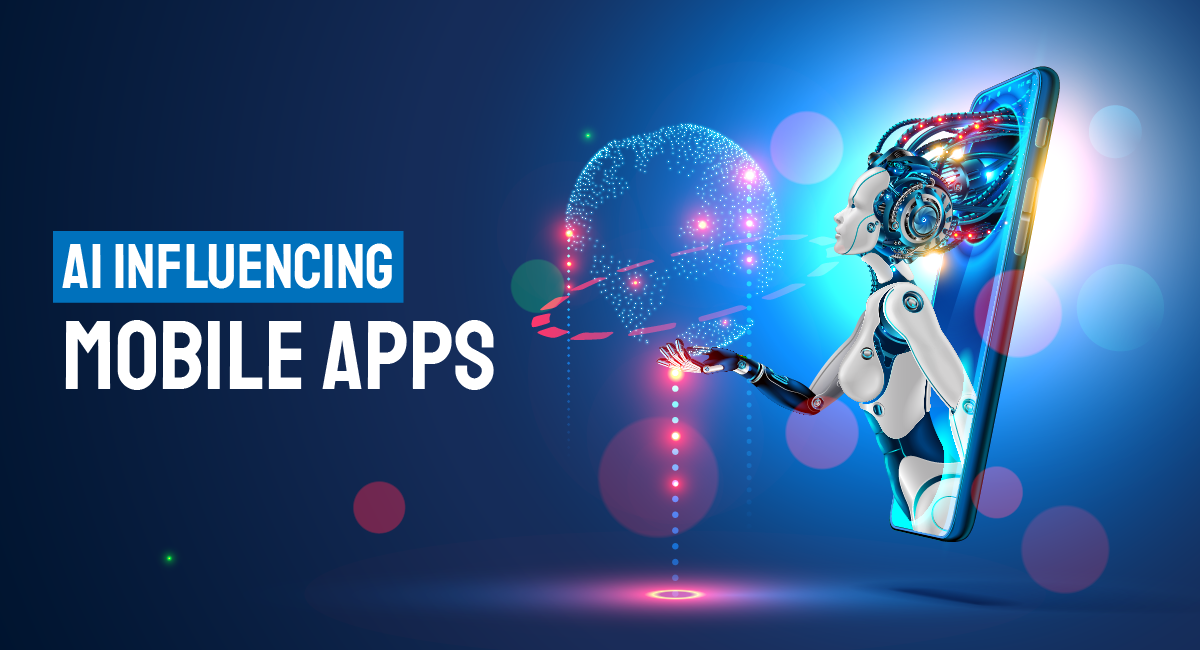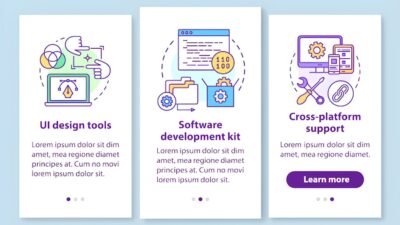The 10 Powerful Artificial Intelligence to Use in Mobile App Development

Artificial intelligence (AI) has revolutionized the tech industry in recent years, offering innovative solutions to enhance performance across various sectors. With the global AI market projected to reach $2 trillion by 2030, it’s clear that businesses are recognizing the potential of this technology. At the same time, the mobile application sector is experiencing exponential growth, with revenues expected to exceed $755 billion by 2027. Given this context, the integration of AI into mobile app development has become a natural progression. In this article, we will explore the six key uses of AI in mobile apps and how they can improve your solutions.
Understanding Artificial Intelligence in Mobile Apps
Artificial intelligence is a field that leverages computer science and extensive datasets to mimic human problem-solving and decision-making capabilities. It encompasses various subfields such as machine learning, deep learning, natural language processing, neural networks, and computer vision. AI is already being utilized in industries like healthcare, retail, finance, real estate, and insurance. Mobile applications, with their vast amount of data, present a ripe opportunity for AI integration.
The Benefits of AI in Mobile App Development
- Enhanced User Experience: AI algorithms enable sentiment analysis and emotion recognition, resulting in a more personalized and intuitive user experience.
- Automated Operations: AI-powered features automate manual tasks, reducing errors and increasing accuracy, particularly when handling data.
- Increased Efficiency: AI-driven mobile apps can perform tasks faster than humans, improving processes like data processing, customer queries, and workflow management.
AI can bring these benefits to both web and mobile applications, offering a range of possibilities, from chatbots and digital assistants to personalized experiences and enhanced security features.

Six Key Uses of AI in Mobile Apps
1. Chat Automation
To ensure a smooth user experience and excellent customer support, AI-based chatbots can automate customer queries using natural language processing. These intelligent tools analyze user queries, fetch relevant information, and provide contextual responses. By implementing chatbots, businesses can reduce operational costs while improving customer service.
2. Digital Assistance
Virtual assistants equipped with voice and speech recognition technology enable users to interact with the app through voice commands, eliminating the need for manual navigation. This feature saves time and enhances accessibility, particularly for users with disabilities. Additionally, AI can provide digital assistance for internal processes, such as call center performance, by delivering dynamic call scripts and dialogue suggestions in real-time.
3. Enhanced Security
AI plays a crucial role in maintaining app security. By processing large amounts of data at high speeds, AI algorithms can detect and prevent potential cybersecurity threats, alerting both users and developers. Furthermore, AI enhances biometric authentication systems by improving accuracy and efficiency in analyzing and matching biometric data with databases.
4. Advanced Analytics
AI revolutionizes app analytics by analyzing user behavior and providing insights for both historical performance evaluation and future predictions. By continuously monitoring usage data, businesses can make data-driven decisions, improve user experiences, and forecast demand accurately. AI-powered analytics can also be employed in healthcare to assist in disease diagnosis or in insurance for damage assessment and risk analysis.
5. Personalized Experiences
AI allows businesses to deliver personalized experiences by analyzing user behavior and preferences. By understanding individual customer needs, businesses can provide tailored recommendations, increasing the likelihood of completing purchases and ensuring customer satisfaction.
6. Process Optimization
AI can optimize processes within mobile apps by automating tasks, improving accuracy, and streamlining operations. From data processing to workflow management, AI provides businesses with the means to optimize efficiency and drive productivity.
Implementing AI in Mobile Apps: A Step-by-Step Guide
To successfully incorporate AI into mobile app development, follow these essential steps:
- Define Challenges: Identify the specific challenges AI can address in your application to prioritize its implementation effectively.
- Analyze Data: Understand the data sources required for AI integration and utilize data analytics tools to organize and govern data efficiently.
- Set Metrics and Goals: Define clear goals and metrics to measure the value AI brings to your app’s processes, services, or products.
- Implement the Solution: Collaborate with experienced developers and engineers proficient in AI technologies to design and develop an effective AI-powered mobile app.
- Integrate Third-Party Tools: If necessary, integrate APIs or custom integration technologies to enhance your app’s intelligence and functionality.
- Monitor and Optimize: Continuously monitor the app’s performance, metrics, and user feedback to make necessary adjustments and optimize the AI algorithms or other components.
Embracing AI-Powered Mobile App Development
Incorporating AI into mobile app development offers businesses a competitive edge in a rapidly evolving digital landscape. By leveraging the power of AI, organizations can enhance user experiences, automate operations, and optimize processes. At Velvetech, we understand the significance of differentiation in mobile software development. Our team is dedicated to creating innovative solutions that cater to user needs while driving business growth. If you’re looking to leverage AI in your iOS or Android app development project, reach out to us, and let’s collaborate to unlock the true potential of AI in your mobile apps.










